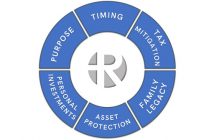Interpreting equity declines as relatively “good”, “bad” or “ugly” provides context on how investors should react.
• We are experiencing a “good” correction as investors have focused on the level of sustainable economic growth and concluded that it is lower than they hoped.
• I am modestly positive about risk assets and believe investors will get significantly more impact by looking at sectors and individual securities rather than broad markets.
The opening week of 2016 has been ugly for equity markets. For those experiencing the stress of a market correction it is hard to believe that a correction can be “good”. Interpreting equity declines as relatively “good”, “bad” or “ugly” provides context on how to react.
Good — a market correction that rebases the level of future growth rates and or the sources of growth. The correction reduces the risk of excessive expectation building in the markets leading to even greater disappointment later. Sentiment does not change linearly with market moves. Therefore, while investors are nervous about the current correction, the release of excess expectation now helps reduce the risk of panic should a larger setback be required. This is similar to reducing the pressure in a container to prevent an explosion; it is better to lose some of the material in the container than all of it.
Bad — a market correction that reduces the expectation of future growth below zero for a short time. The level of the correction is likely to be greater, but expectations for positive economic growth and corporate earnings will improve over six months.
Ugly — a very severe selloff in the market due to expectations of prolonged recession and structural damage to the financial system. This is rare, but most investors experienced this scenario recently in 2008. Because of the reasonably recent financial trauma induced by the global financial crisis, investors are experiencing “recency bias”. Behavioral research has demonstrated that we tend to assume crises will occur more frequently than is really likely after a major trauma. This does not mean they cannot occur, but we tend to assume every setback is going to be another meltdown.
I believe we are experiencing a “good” correction. Investor expectations of growth were too high given demographic trends, the transformation of the economy in China and significant geopolitical risk. The Federal Reserve tends to change interest rates in response to something they are worried about. They raise rates to fight inflation or reduce rates to fight recession. Last month’s rate increase was based on relief that the U.S. economy is looking healthier and that risks from abroad are manageable. Consequently, investors have focused on the level of sustainable economic growth and concluded that it is lower than they hoped.
Lastly, I think investors are going to get significantly more impact by looking at sectors and individual securities rather than broad markets. The current selloff is evidence that markets are not cheap. Outside of emerging markets, valuations are not particularly compelling. So while opportunities still exist for risk assets, I don’t think we will be pursuing them via traditional allocations (U.S. vs. non-U.S., Japan vs. Europe, etc.). It may come down to what we see happening within individual sectors where we think growth is sustainable or the stimulus of rising rates will have the most positive impact.
Adapted from Colin Moore, Global Chief Investment Officer at Columbia Threadneedle Investments. Provided by Ed Wettig, CFP, Wettig Capital Management which offers investment management, financial planning and retirement income strategies. Securities and investment advisory services offered through Royal Alliance Associates, Inc. Member FINRA/SIPC and a Registered Investment Advisor. Wettig Capital Management is independent of Royal Alliance Associates, Inc. and not registered as a broker/dealer or investment advisor.
Wettig Capital Management, Ed Wettig, CFP, Financial Advisor, 541-706-9336, ed@wettigcapital.com www.wettigcapital.com
What Kind of Market Decline Are We Having?
0
Share.





